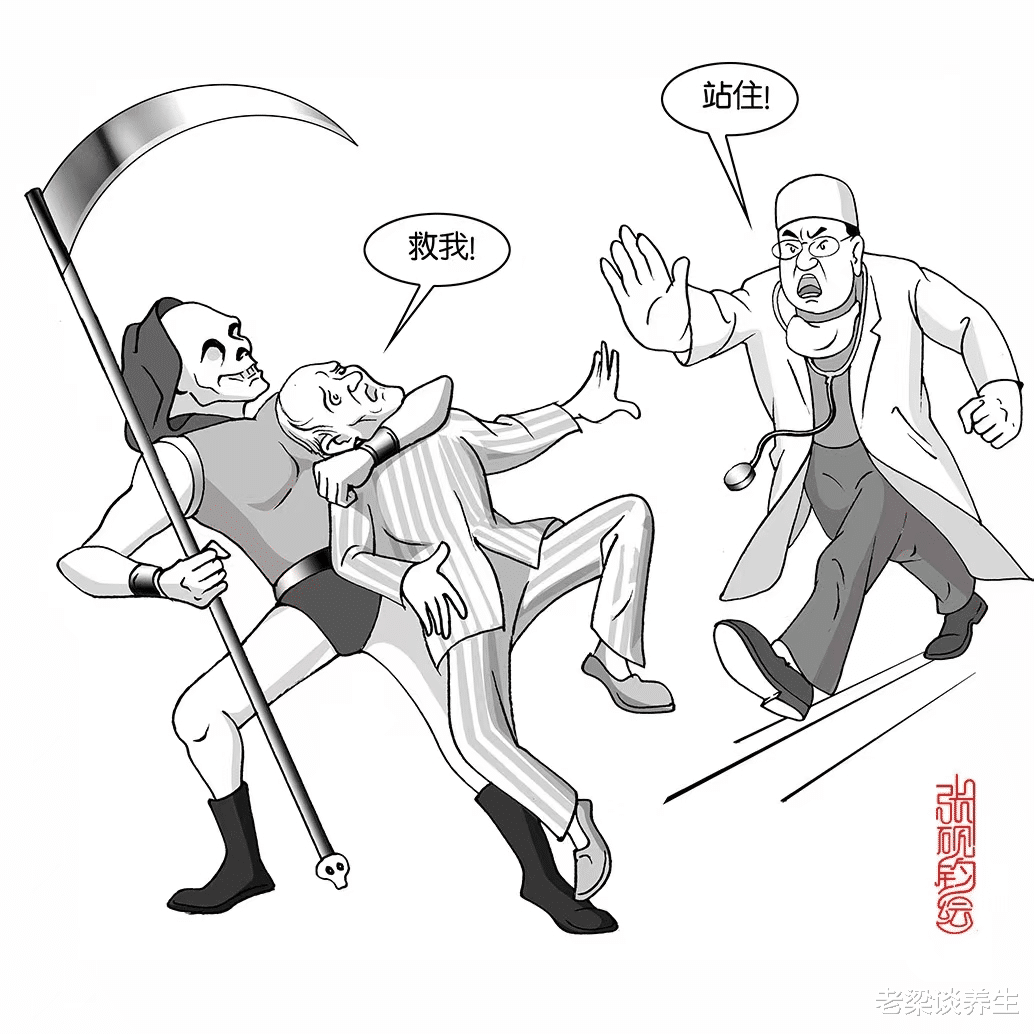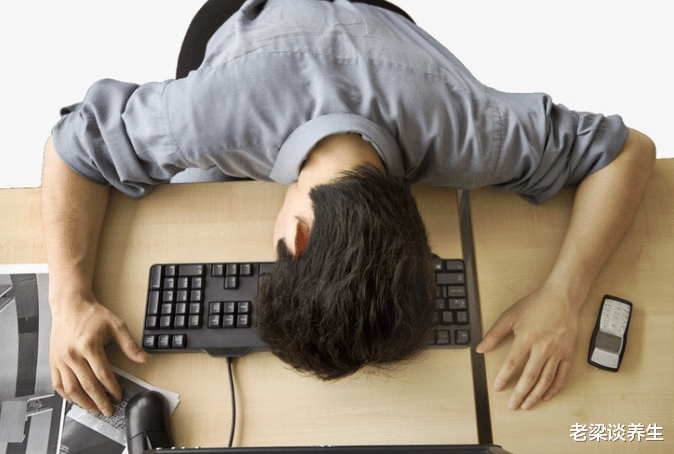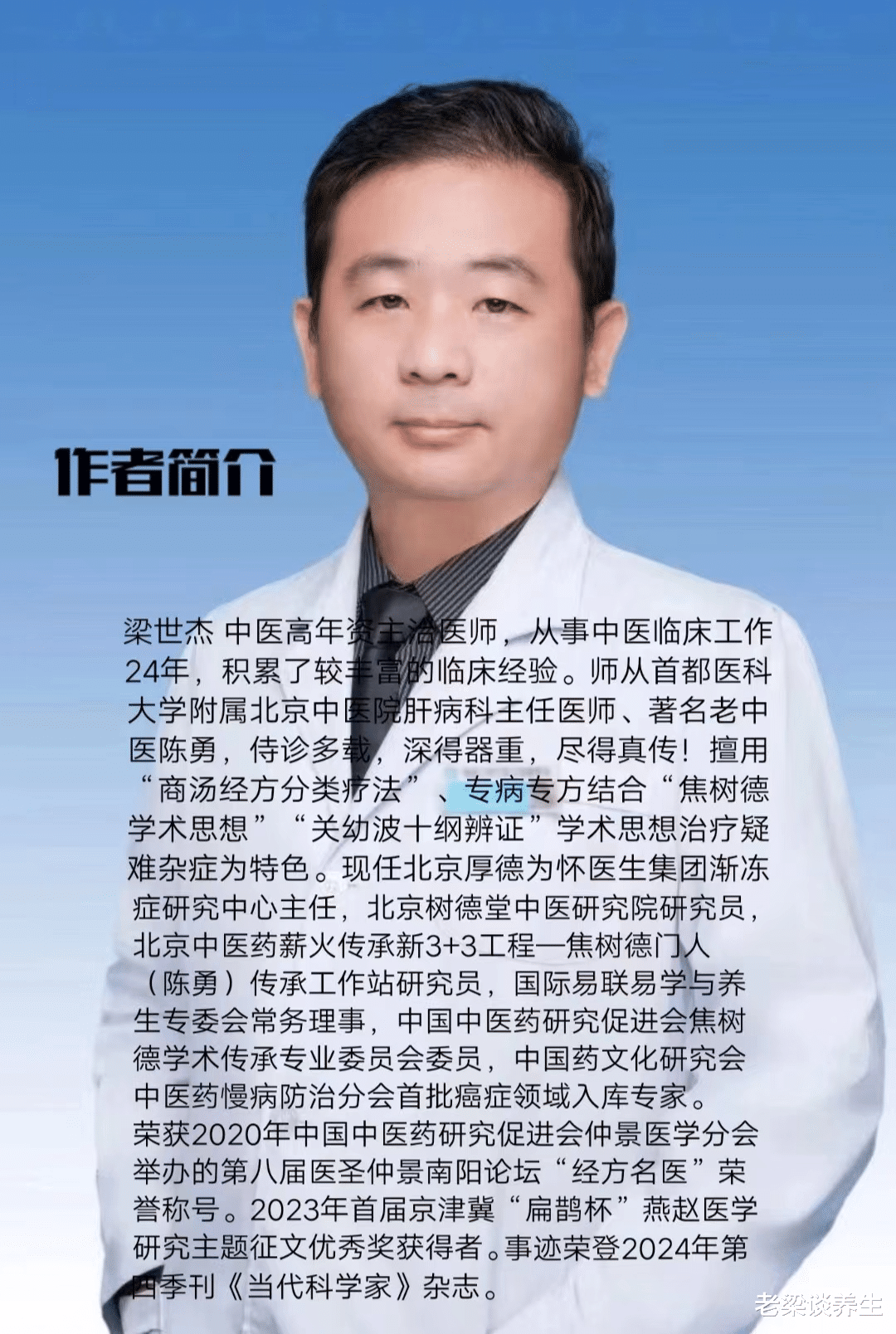在浩瀚的历史长河中,古人通过长期的观察与实践,总结出一套天人合一的养生智慧。这些智慧,虽历经千年,却历久弥新,对现代人的健康生活仍具有深远的指导意义。其中,“七不”准则——不妄作劳以养气,不极饥食以养脾,不久视伤血以养肝,不骤语耗气以养肺,不纵欲伤精以养肾,便是调和形神、颐养天年的根本大法。

一、不妄作劳以养气
“不妄作劳”,即不过度劳累,以免耗伤正气。在现代社会,快节奏的生活和工作压力常常使人们身心俱疲。试想,一位程序员连续加班数日,身心俱焚,最终因过度劳累而病倒。这便是“妄作劳”的恶果。反之,若能合理安排工作与休息,做到劳逸结合,便能养足正气,保持旺盛的生命力。正如古人所言:“劳则气耗,逸则气滞。”唯有适度劳作,方能养气固本。
二、不极饥食以养脾
“不极饥食”,即在极度饥饿时切勿暴饮暴食,以免损伤脾胃。脾胃为后天之本,气血生化之源。现代人生活节奏快,常常因工作繁忙而忽略饮食,等到饥饿难耐时才大吃一顿。这种做法极易导致脾胃功能紊乱,出现消化不良、胃痛等症状。相反,若能按时进餐,细嚼慢咽,便能养护脾胃,促进消化吸收。正如一位养生专家所言:“饮食有节,脾胃自安。”

三、不久视伤血以养肝
“不久视伤血”,即长时间用眼会耗伤肝血。现代生活中,电脑、手机等电子产品已成为人们不可或缺的日常用品。然而,长时间盯着屏幕,不仅会导致视力下降,还会耗伤肝血,引发头晕目眩、失眠多梦等症状。因此,合理用眼,适时休息,多做眼保健操,是养肝明目的关键。正如古人所云:“肝开窍于目,久视伤血。”
四、不骤语耗气以养肺
“不骤语耗气”,即避免急促说话,以免耗伤肺气。肺气主宣发肃降,司呼吸。现代人社交活动频繁,常需滔滔不绝地交谈。然而,急促说话不仅会使人感到口干舌燥,还会耗伤肺气,引发咳嗽、气喘等症状。因此,保持语速适中,言简意赅,是养肺的关键。正如一位中医所说:“肺主气,司呼吸,骤语耗气,肺伤矣。”

五、不纵欲伤精以养肾
“不纵欲伤精”,即节制性欲,以免耗伤肾精。肾为先天之本,藏精主水。现代人生活压力大,常通过放纵性欲来寻求短暂的放松。然而,这种做法极易导致肾精亏虚,出现腰膝酸软、头晕耳鸣、记忆力减退等症状。因此,节制性欲,保持适度的性生活,是养肾固精的关键。正如古人所言:“肾藏精,精生髓,髓养骨。”
结语:古人的智慧与现代生活的融合
古人的“七不”准则,看似简单,实则蕴含着深刻的养生智慧。在现代社会,这些准则依然具有指导意义。它们提醒我们,在追求物质享受的同时,更要关注身心健康,做到起居有常、饮食有节、劳逸结合、适度运动。只有这样,我们才能在快节奏的生活中保持内心的宁静与平衡,实现天人合一的养生大道。

让我们以古人的智慧为镜,反观自身,调整生活方式,让养生成为一种习惯,一种态度,一种追求。在追求健康生活的道路上,让我们携手同行,共创美好未来。
作者简介:梁世杰 中医高年资主治医师,从事中医临床工作24年,积累了较丰富的临床经验。师从首都医科大学附属北京中医院肝病科主任医师、著名老中医陈勇,侍诊多载,深得器重,尽得真传!擅用“商汤经方分类疗法”、专病专方结合“焦树德学术思想”“关幼波十纲辨证”学术思想治疗疑难杂症为特色。现任北京厚德为怀医生集团渐冻症研究中心主任,北京树德堂中医研究院研究员,北京中医药薪火传承新3+3工程—焦树德门人(陈勇)传承工作站研究员,国际易联易学与养生专委会常务理事,中国中医药研究促进会焦树德学术传承专业委员会委员,中国药文化研究会中医药慢病防治分会首批癌症领域入库专家。荣获2020年中国中医药研究促进会仲景医学分会举办的第八届医圣仲景南阳论坛“经方名医”荣誉称号。2023年首届京津冀“扁鹊杯”燕赵医学研究主题征文优秀奖获得者。事迹荣登2024年第四季刊《当代科学家》杂志。

What are the ancient "seven no" rules that can preserve the heavenly year? Is it useful for modern people?
In the long history, the ancient people, through long-term observation and practice, concluded a set of integrated natural and man-made health wisdom. These wisdoms, even though they have evolved over thousands of years, have continued to evolve, and they still have far-reaching guidance for the healthy life of modern people. Among them, the "seven no" principles - not to work unnecessarily to support the qi, not to eat extremely hungry to support the spleen, not to injure the blood soon afterwards to support the liver, not to use the breath quickly to support your lungs, and not to want to injure your semen to support your kidneys - are the fundamental law of reconciling the form gods and maintaining the heavenly year.
I. Don't work to maintain your morale
"Don't work too hard," i.e. don't work excessively so as not to drain your spirits. In modern society, the stress of fast-paced life and work often makes people physically and mentally exhausted. Imagine a programmer who works overtime for several days, becomes physically and mentally burned, and eventually falls ill as a result of the overwork. This is the consequence of "reckless labor." On the other hand, if you can arrange work and rest reasonably and combine work and leisure, you can maintain your vigor and maintain your vitality. As the ancients said: "Overexertion leading to qi consumption, Yi qi stagnation." Only moderate exercise can maintain the fuel.
II. Do not eat too much to strengthen your spleen
"Not to eat very hungry," i.e., never to overeat when you are hungry, so as not to damage your spleen and stomach. The spleen and stomach are the natural ingredients and the biochemical sources of qi and blood. Modern people live at a fast pace, often neglecting diet because of their busy work, and wait until hunger is too much to eat. This practice is very likely to cause a disorder of spleen and stomach function, and develop symptoms such as indigestion and swallowing pain. On the contrary, if you can eat on time and chew and swallow slowly, you can protect your spleen and promote digestion and absorption. As one health expert puts it, "Eat well, and your stomach is at peace."
III. Blood from eye injury soon feeds the liver
"Short-term eye injury," i.e., prolonged use of the eye can drain the blood of the liver. In modern life, electronic products such as computers and mobile phones have become indispensable daily items for people. However, staring at the screen for a long time not only causes vision loss, but also drains liver blood, causing dizziness, insomnia and other symptoms. Therefore, the rational use of eyes, timely breaks, do more eye health care exercises, is the key to Yanggan eyesight. As the ancients said: "liver opening at eye, long injury blood."
IV. Don't talk loudly to drain your breath to help your lungs
"Don't use your breath" - avoid talking in a hurry to avoid damaging your lungs. The lungs pronounced a lowering and breathed. Modern people have a lot of social activities and often need to talk a lot. However, speaking in a hurry not only makes people feel dry mouth and dry mouth, but also drains the lungs and triggers symptoms such as cough and wheezing. Therefore, maintaining a moderate voice speed and speaking concisely is the key to maintaining the lungs. As a doctor of traditional Chinese medicine said: "lung governing qi, Secretary of breathing, sudden language consumption of gas, lung injury."
V. Do not desire to slash the sperm to support your kidneys
"Don't indulge in sexual desire," that is, limit your libido so as not to deplete your kidneys. The kidney is innate and holds sperm and water. Modern people live a stressful life and often seek temporary relaxation by indulging their sexuality. However, this practice is very easy to cause kidney deficiency, which causes symptoms such as weakness in the lower back and knees, dizziness and tinnitus, and memory loss. Therefore, controlling sexual desire and maintaining a moderate sex life is the key to kidney and sperm growth. As the ancients said: "kidney storing essence, essence, marrow, marrow."
Conclusion: The Convergence of Ancient Wisdom with Modern Life
The ancient people's "seven no" guidelines, which seem simple, actually contain profound health wisdom. In modern society, these guidelines remain guiding. They remind us that while pursuing material enjoyment, we must pay more attention to our physical and mental health, and live and eat well, work and play together, and exercise in moderation. Only in this way can we maintain inner peace and balance in a fast-paced life and realize the spiritual road of harmony between man and nature.
Let us use the wisdom of the ancient people as a mirror, look at ourselves, adjust our lifestyle, and make healing a habit, an attitude, and a pursuit. In the pursuit of a healthy life, let us work together to create a better future.
Author Bio: Liang Shijie is a senior medical practitioner in traditional Chinese medicine. He has been engaged in traditional medicine clinical work for 24 years and has accumulated a wealth of clinical experience. Following Chen Yong, chief physician of liver disease at Beijing Traditional Medicine Hospital, affiliated with Capital Medical University, and renowned old Chinese medicine, he has been treated for many years and received great attention. He specializes in the treatment of difficult diseases using "conversational traditional therapy" and special treatments combined with the academic ideas of Jiao Shude and Guan Yubo's ten-level diagnosis.He is currently the director of the Center for Diffusion Research of Dr. Houde Wei Group in Beijing, a researcher at the Shude Tang Institute of Chinese Medicine, and a fellow at the new 3 + 3 project of traditional Chinese medicine flame inheritance in Beijing - a scholar at the inheritance work station of Jiao Shude's protégés (Chen Yong),He is a standing committee member of the International Expert Committee on E-learning and Health Care, a member of the Jiao Shude Academic Heritage Special Committee of the Chinese Association for the Advancement of Chinese Medicine Research, and the first cancer specialist to be included in the chapter of the Chinese Pharmaceutical Culture Research Association. Won the 2020 China Association for the Promotion of Traditional Chinese Medicine Zhongjing Medical Branch held the eighth session of the Medical Saint Zhongjing Nanyang Forum "Classic Prescription Famous Doctor" honorary title. The winner of the first Beijing-Tianjin-Hebei "Pingui Cup" Yanzhao Medical Research Essay Award in 2023. The story was featured in the fourth edition of Current Scientist in 2024.